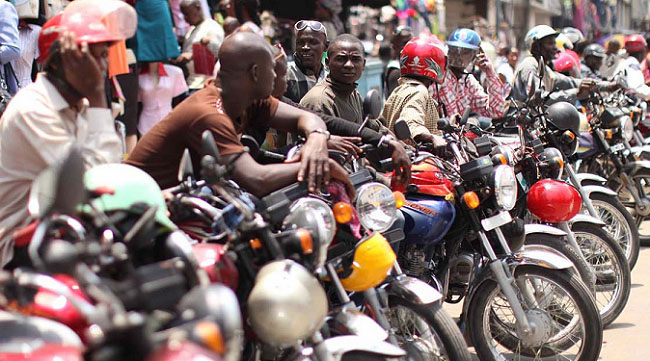Some by-laws and regulations have become latent because their enforcement is beyond those responsible for the task.
Commercial motorbike commuting is an infringement of the law yet it is the most patronized by those who want to get to places swiftly within the city.
There are, however, many things wrong with their operation which calls for a rethink about the seeming indifference on the part of officialdom.
Many of the riders of the motorbikes who criss-cross Accra’s busy streets and roads are creating a lot of nuisance because of their ignorance of road traffic regulations and sometimes stupid bravado as they jump traffic lights. Pillion riders who suffer serious injuries when accidents occur are lame ducks as their fate is left in the hands of the riders.
They are in a hurry to deliver their passengers because that is how they make more money the dangers posed notwithstanding.
At first, attempts were made to enforce the law on the commercial motorbike commuting but after sometime it was stopped as though government had legalized the business.
The political undertones that come with the enforcement of the law related to Okada operations cannot be ignored in our circumstances. Many are they who would rather the dangers are ignored because that inures to their political leverage. Their double-standards would push them to pitch camp with the riders when that suits them.
Many have died and others maimed through Okada-related accidents and unfortunately still counting. We must as a country review the legislation on their operations if we want to allow them. In that case, therefore there must be a regulation about their operations. Some of the riders do not even know that they require licences to ride motorbikes. After all, they ply the roads and should therefore be conversant with road traffic regulations. Unfortunately, many of the riders think they are exempted from obeying such regulations and hardly stop at traffic lights when they have to, resulting in fatalities sometimes.
A few months ago, the Central Motor Traffic and Transport Department (MTTD) of the Ghana Police Service reportedly organized some lessons for selected Okada riders. We could not resist asking whether that was a subtle legalization of the occupation.
From all indications, the occupation has come to stay and we must accept the reality and move on because after all it appears we have given up on them. What a shame when the disadvantages outweigh the advantages.
It is a sad reflection about how law enforcement is not receiving the necessary push from those responsible for it.
The enforcers have a story to tell too: they often encounter interferences from politicians. While that can be true, some law enforcement agents too do not only patronize the Okadas they own them.
Okada riders must learn about safety procedures such as the importance of using helmets and observing traffic regulations, among others. Above all, they must be licenced if they must share the roads with both pedestrians and motorists.


